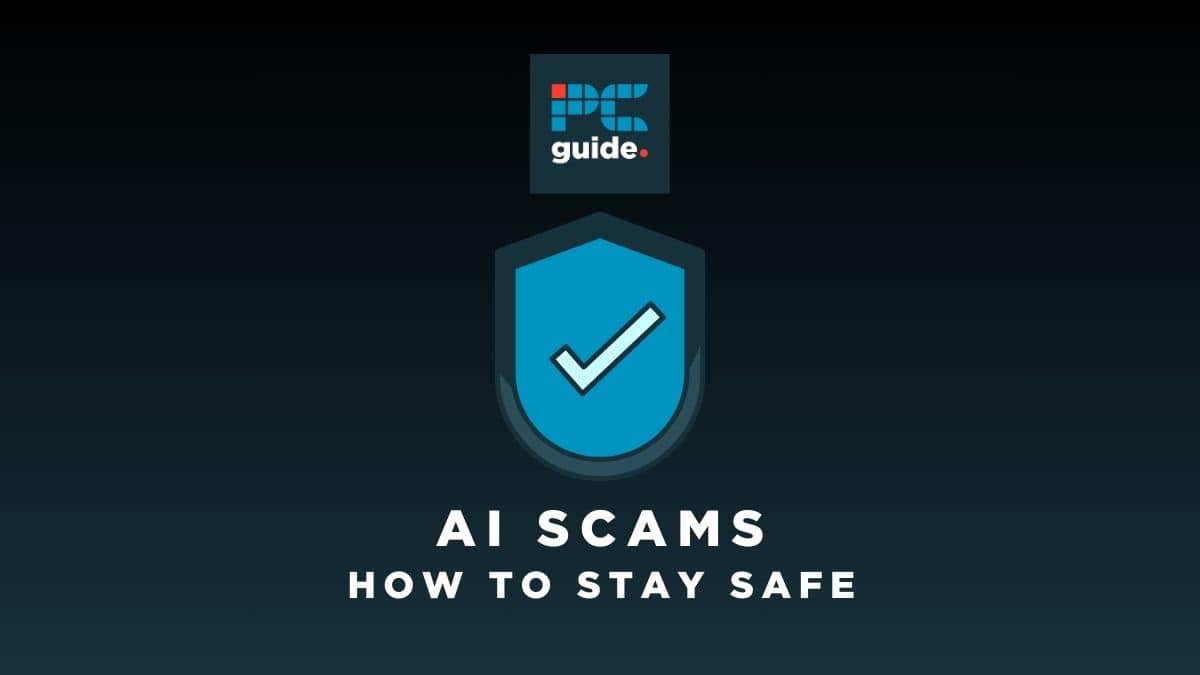AI Scam tracker list – How do AI scams work?

Table of Contents
AI is the hottest technology of 2023, and the prevalence of AI scams has increased as an inevitable consequence. Here we list all of the most common, high-profile, and damaging scams relating to artificial intelligence. First, let’s take a look at how these criminal use cases work, and how to protect yourself from them.
What is an AI scam?
An AI scam is a very modern phenomenon — a scam made possible by artificial intelligence. There are several types of AI scam, and different kinds of AI involved, so let’s break this down. Some AI makes it easier for criminals to collect, process, and sort through data. This is called discriminative AI. Other AI allows criminals to generate new data, such as fake photos of people that don’t exist, or fake audio and video recordings of people that do exist. This is called generative AI.
This generative AI media is not limited to falsified ‘recordings’ as such, as they can be generated in real-time. You could be talking to an AI over the phone, who claims to be someone you know and sounds exactly like them. Remember, while AI of this kind isn’t perfect, and the aesthetic quality of AI audio is usually easy to distinguish, it becomes much harder to distinguish over the phone. A phone line is typically not a high-quality audio source, making the quality of a real human voice and an AI-generated one much more similar; Similarly bad, that is.
Essential AI Tools
What are the most common types?
The most common types of AI scam include:
- AI-generated endorsement. With generative AI, scammers can create audiovisual content that appears to feature a well-known public figure. These can be images, audio recordings, or videos of a politician or celebrity — as has already happened with Elon Musk, Scarlett Johansson, and Tom Hanks. To help protect yourself against this kind of scam, do not believe the authenticity of any endorsement that isn’t published on official brand channels, or the channels of the endorser in the content.
- Family emergency scams. Several reported cases in the US detail how victims were called by what they believed to be a family member or close friend in an emergency that could be solved with money. This includes Philadelphia attorney Gary Schildhorn, who is more au fait with the legal system than the average person. The caller was in fact a real-time generative AI mimicking the voice of his son. To help protect yourself against this kind of scam, be aware that it is possible, and confirm the callers identity in a way that only the real person would be able.
Quantum AI Elon Musk scam
xAI CEO Elon Musk was recently the target of an AI-generated endorsement scam. The AI-generated media appeared to show the Tesla chief executive announcing a new “project” or company, called Quantum AI on Fox News with Tucker Carlson. He has nothing to do with Quantum AI. There are, however, multiple websites with similar names to Fox News that appear to corroborate the lies, by impersonating the news station. These websites are also unreputable.
Scarlett Johansson AI scam – Lisa AI app
Hollywood actress Scarlett Johansson was deepfaked by a company attempting to promote their AI deepfake tool. The unauthorized advertisement in question was an edited version of an authentic but old clip of Johansson, on set for Black Widow in 2020. It was edited to promote a mobile app that allows users to create AI avatars with generative AI. She is taking legal action against the firm.
Tom Hanks AI scam – AI dental plan ad
The likeness of Hollywood actor Tom Hanks has been used to seemingly endorse a dental company. Hanks took to Instagram to warn his 9.5+ million followers that “There's a video out there promoting some dental plan with an AI version of me. I have nothing to do with it.”
Previously, the Oscar-winning actor's face was subject to motion capture technology for the 2004 Christmas movie “The Polar Express”. This was the first motion picture to use motion-capture technology for all characters. Similarly, he was de-aged for 2022 motion picture “A Man Called Otto”. The difference between these examples and the ad is, of course, that the AI dental plan ad was not authorized.
